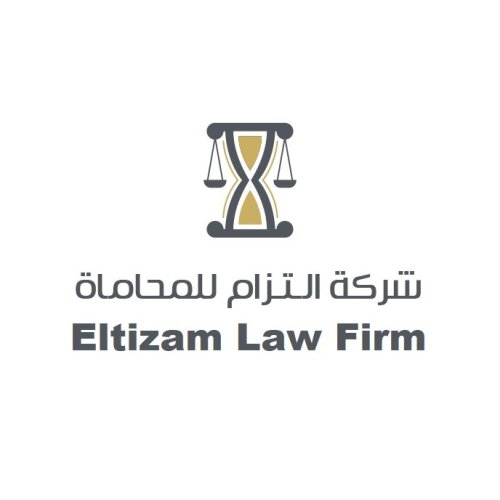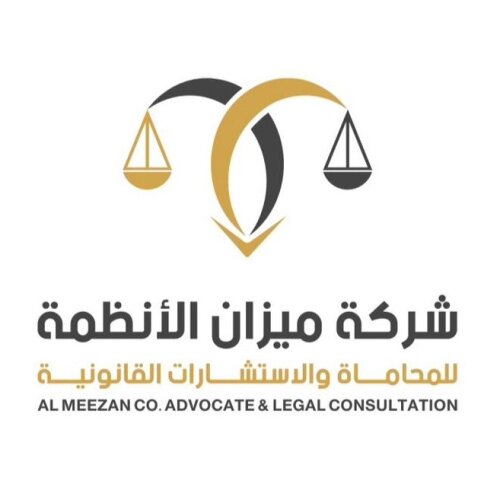
Best Private Client Lawyers in Saudi Arabia
Share your needs with us, get contacted by law firms.
Free. Takes 2 min.
Or refine your search by selecting a city:
List of the best lawyers in Saudi Arabia

About Private Client Law in Saudi Arabia
Private Client law in Saudi Arabia encompasses a broad range of legal services tailored to individuals and families, particularly in relation to wealth, inheritance, succession planning, family arrangements, real estate management, and personal affairs. Given the unique cultural, religious, and legal framework of Saudi Arabia, Private Client matters are significantly influenced by Sharia law as well as local statutes and regulations. These legal services are vital for both Saudi nationals and expatriates who must navigate complex regulations to protect their assets, ensure smooth succession, and resolve personal disputes.
Why You May Need a Lawyer
There are many situations where individuals in Saudi Arabia should consult a lawyer specializing in Private Client matters. Common scenarios include:
- Drafting and executing wills or inheritance documents according to Sharia and local laws
- Handling estate administration and distribution after a family member’s death
- Asset protection and structuring family-owned businesses
- Resolving family disputes or negotiating family settlements
- Managing and transferring real estate assets
- Advising on tax obligations relevant to inheritance and personal assets
- Protecting the rights of expatriates with assets or family in Saudi Arabia
- Assisting with guardianship and custody issues for minors or incapacitated adults
An experienced Private Client lawyer can help you avoid costly mistakes, ensure compliance with local laws, and achieve peace of mind regarding your family's future.
Local Laws Overview
Saudi Arabian Private Client matters are governed primarily by Sharia principles, interpreted through local courts and applied specifically to issues such as inheritance, family law, and personal dispute resolution. Key legal considerations include:
- Inheritance Law: Saudi inheritance is based on Sharia principles, which dictate fixed shares for heirs such as children, spouses, and parents. There is limited scope for excluding heirs or altering shares through wills.
- Wills: While you may draft a will, only up to one-third of your estate can generally be bequeathed to non-heirs or for charitable purposes; the rest is distributed according to Sharia shares.
- Real Estate: Foreigners face restrictions in owning and transferring real estate in Saudi Arabia. Property issues are often tied to family and inheritance matters.
- Guardianship: Custody arrangements for minor children and incapacitated adults are strictly regulated, usually prioritizing family ties and religious considerations.
- Litigation and Dispute Resolution: Family and inheritance disputes are resolved in Sharia courts. Alternative methods such as family mediation may also be available.
- International Considerations: Expatriates or those with assets abroad may encounter additional complexities, including the need to harmonize Saudi law with foreign legal systems.
These laws are subject to regular updates and judicial interpretation, so current professional advice is crucial.
Frequently Asked Questions
What is the process for drafting a will in Saudi Arabia?
Drafting a will in Saudi Arabia must comply with Sharia principles. A will can only cover up to one-third of the estate for non-heirs or special purposes, and it must be witnessed and approved by a local court to be legally valid.
Can foreigners inherit assets in Saudi Arabia?
Foreigners may inherit certain assets within Saudi Arabia, but some property types, especially real estate, are subject to restrictions. Legal advice is necessary to understand your specific situation.
How are estates distributed if there is no will?
When there is no will, estates are distributed according to fixed Sharia shares among eligible heirs, determined by religious and familial relationships.
What happens to debts after a person dies?
A deceased person's debts are settled using their estate assets before any distribution to heirs can occur. Outstanding debts must be paid in full.
Are trusts recognized under Saudi law?
Trust structures as recognized in some other legal systems are not commonly available under Saudi law. However, similar arrangements may be possible through family agreements or holding companies, with legal assistance.
Can I give all my assets to charity in my will?
You may allocate up to one-third of your estate to charity or non-heirs through your will. The remainder must be distributed to your Sharia-designated heirs.
How are minor children provided for if one or both parents die?
Guardianship of minor children is usually determined by Sharia principles, and custody is often granted to close family relatives, with the court’s approval.
How can disputes among heirs be resolved?
Disputes among heirs are typically resolved in Sharia courts, though informal mediation or family agreements may also play a role if all parties agree.
Am I allowed to exclude a family member from inheritance?
Under Saudi Sharia law, it is very difficult to exclude Sharia-designated heirs from their rightful share of inheritance.
What legal documents should I prepare for private client matters?
Standard documents include a will, power of attorney (where applicable), family business agreements, and property titles. It is advisable to seek legal help to prepare these documents correctly.
Additional Resources
If you need more information or support, consider contacting these organizations and bodies:
- Saudi Ministry of Justice - Handles wills, inheritance, and family disputes
- Local Notaries - Certify and witness legal documents, including wills and agreements
- Saudi Bar Association - Directory of qualified lawyers specializing in Private Client matters
- Embassies or Consulates - Can offer guidance to expatriates or foreigners with assets or family in Saudi Arabia
- Family Guidance Centers - Provide mediation and counseling for family disputes
Next Steps
If you believe you need legal assistance for a Private Client matter in Saudi Arabia, start by gathering all relevant documents and details about your situation. Consider consulting a specialized Private Client lawyer, who can provide guidance tailored to your circumstances and ensure your interests are properly protected.
Check the Saudi Ministry of Justice or Saudi Bar Association for lists of qualified professionals. Be prepared to discuss your goals, any current disputes, and your long-term plans for family and assets. Prompt and thorough legal advice is key to navigating Private Client law successfully in Saudi Arabia.
Lawzana helps you find the best lawyers and law firms in Saudi Arabia through a curated and pre-screened list of qualified legal professionals. Our platform offers rankings and detailed profiles of attorneys and law firms, allowing you to compare based on practice areas, including Private Client, experience, and client feedback.
Each profile includes a description of the firm's areas of practice, client reviews, team members and partners, year of establishment, spoken languages, office locations, contact information, social media presence, and any published articles or resources. Most firms on our platform speak English and are experienced in both local and international legal matters.
Get a quote from top-rated law firms in Saudi Arabia — quickly, securely, and without unnecessary hassle.
Disclaimer:
The information provided on this page is for general informational purposes only and does not constitute legal advice. While we strive to ensure the accuracy and relevance of the content, legal information may change over time, and interpretations of the law can vary. You should always consult with a qualified legal professional for advice specific to your situation.
We disclaim all liability for actions taken or not taken based on the content of this page. If you believe any information is incorrect or outdated, please contact us, and we will review and update it where appropriate.
Browse private client law firms by service in Saudi Arabia
Saudi Arabia Attorneys in related practice areas.
Browse private client law firms by city in Saudi Arabia
Refine your search by selecting a city.















